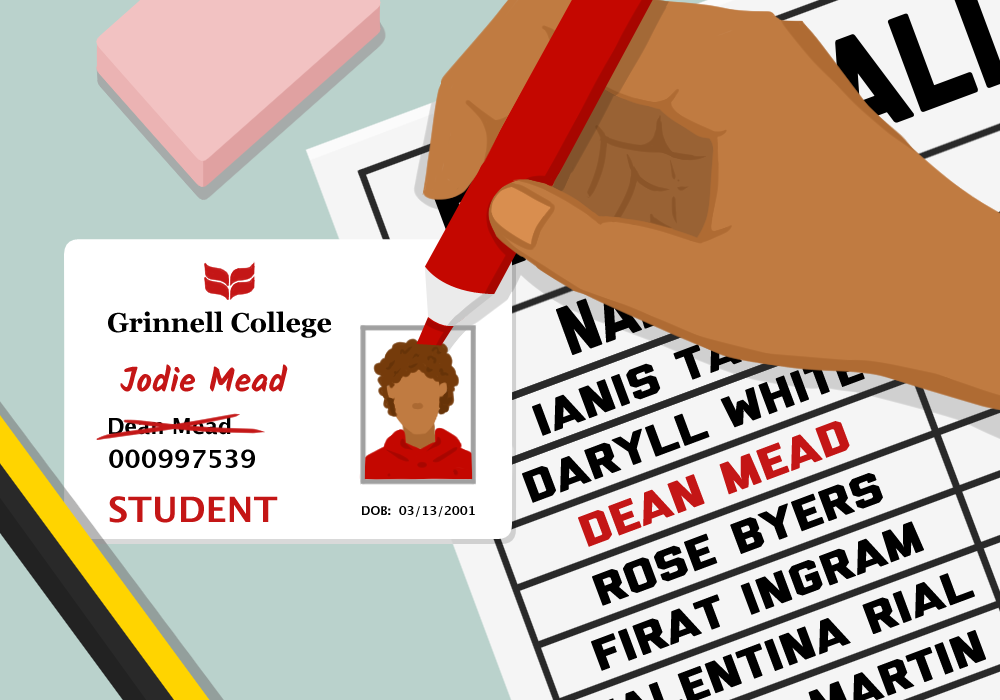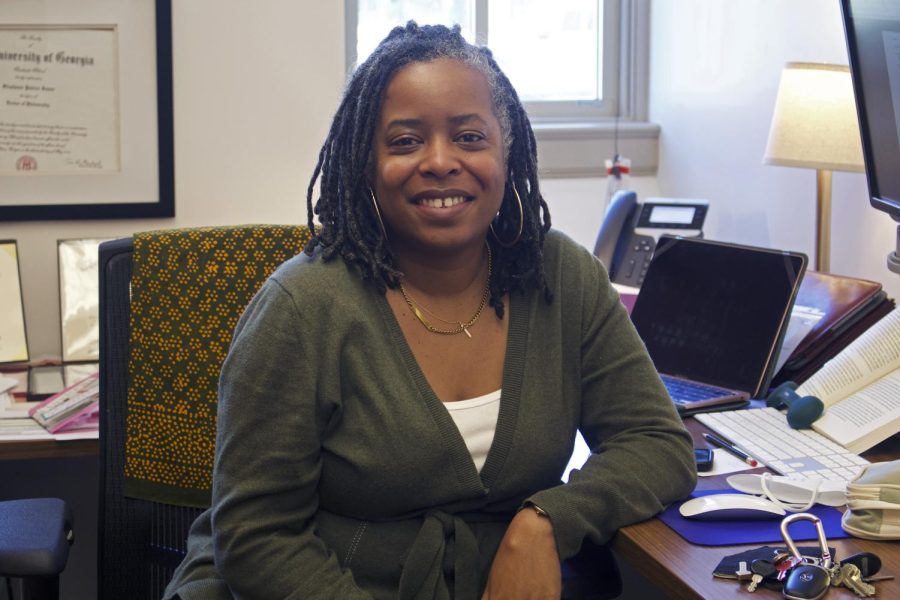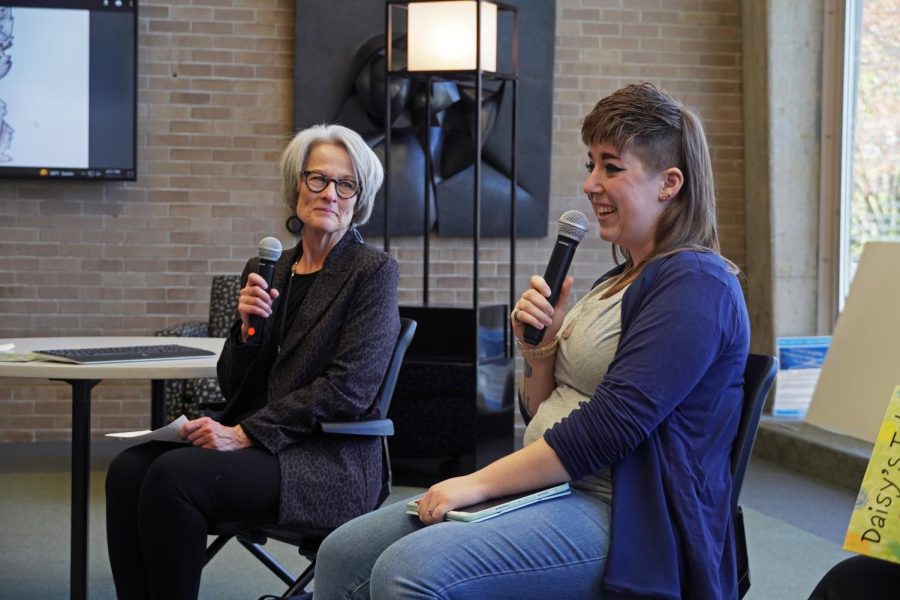The first weeks of classes are difficult for any student, but some transgender and non-binary students were faced with an additional hurdle: their deadnames showing up on P-cards, Blackboard, and email addresses for teachers and peers to see.
“Deadname” is a colloquial term for a transgender or non-binary person’s given name at birth, if they change their name while transitioning. “Misgendering” is a term for using the wrong pronouns to refer to someone.
For first year Rowan Munson `25, hearing their teacher say their deadname was “devastating” – “to kind of be held in the silence of a teacher calling out your deadname, and then knowing you have to answer or else get marked absent,” they said.
Another first year, who requested anonymity due to the risk of retaliation, said their deadname was used in a roll-call in one of their classes because it was listed on the class roster. They said their on-campus job supervisor has also frequently misgendered them.
Munson said they always list their chosen name over their deadname, unless it is required for legal documentation. Still, their deadname appeared on their P-card and on Blackboard.
“I trusted them [Grinnell administration] with my deadname for legal reasons but they obviously didn’t keep it a secret,” said Munson.
Munson was not provided with information on how to pursue changing their name in Grinnell’s system– a task they feel they cannot take on during this already strenuous transition.
“It’s the beginning of the year, and I don’t have the emotional energy to go through all that,” they said.
The anonymous student said they did not feel safe putting their chosen name on any documents, out of fear that a family member could see it. But hearing their deadname and being misgendered regularly is emotionally disruptive.
“Getting me misgendered makes me feel unsafe … I have a lot of trauma related to misgendering so then it makes it hard to form connection and community,” they said. “I find myself pulling away from people who misgendered me, even if it’s by accident.”
Grinnell Assistant Vice President of Student Affairs and Dean of Inclusivity Initiatives Maure Smith-Benanti explained the process of changing one’s name over email. Students can go to the Registrar’s page on Grinnellshare, then “Student Name, Gender, Pronoun Declaration and Change Form.” (Editor’s Note: Corrected pathway.) Students can get a new P-Card immediately after turning in their old one and can expect a new email username within a couple of days.
Neither of the students interviewed was aware of the process of name changing. However, for students in a situation where they need to conceal their gender identity from their family, the College cannot guarantee complete secrecy from student’s guardians. Students must choose between either having their name properly registered or sharing their identity with their parents, which could leave them in an unsafe situation.
Grinnell’s Title IX Coordinator, Bailey Asberry, wrote in an email that “building a community of respect is part of our everyday work at the College.” One way Asberry trains people on improving respect is by rehearsing scenarios where one might witness bias and practicing how to respond.
Students experiencing any types of transgressions, including misgendering and deadnaming, can report it through resources such as Grinnell’s “Report a Bias Incident,” EthicsPoint Anonymous Reporting, and other resources compiled by Title IX. Additionally, a student can report to a teacher or faculty they trust. Grinnell faculty are trained to help students connect with Asberry and other resources.
Asberry said the actions were taken after a report “depends on what the student wants to do.” These responses can include “an educational conversation, no-contact order, training … and other supportive measures and remedies as appropriate.”
The anonymous student says they feel most respected when people do “not assume someone’s gender,” and instead ask for someone’s pronouns when meeting them. They also appreciate when professors allow students to introduce themselves or fill out an anonymous survey with pronouns and names rather than doing a traditional roll call and potentially using a deadname.
Whether students choose to report or not, misgendering and deadnaming have impacted some students’ ability to feel welcome on campus.
To the anonymous student, “It feels kind of isolating, especially because I don’t know a lot of people very well, so I don’t have a support group of, like, queer people to make jokes and laugh with.”
To Munson, “It just seems like something I shouldn’t have to fight for.”





























































